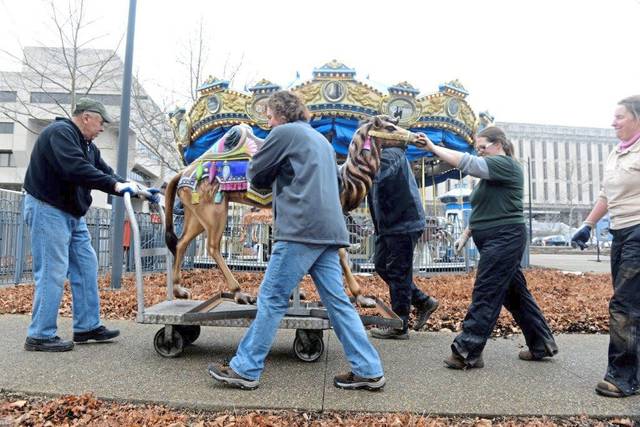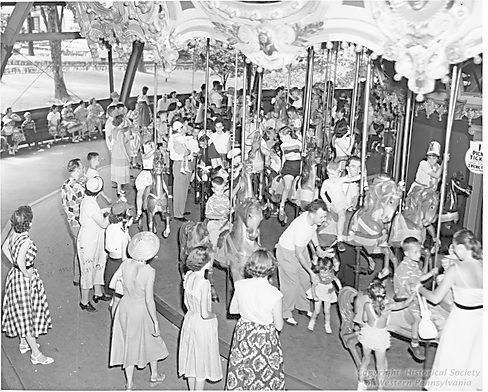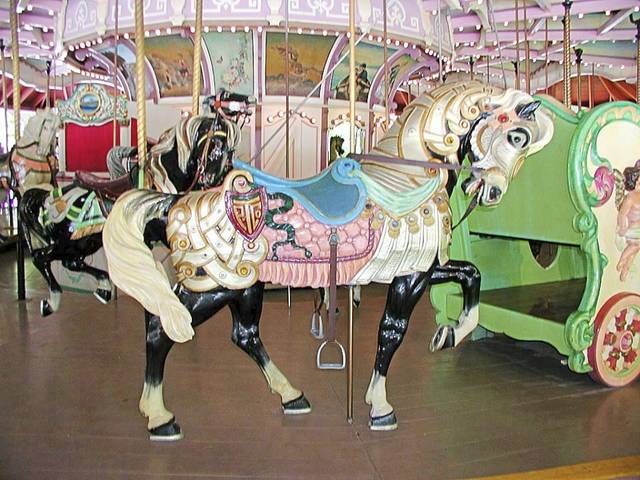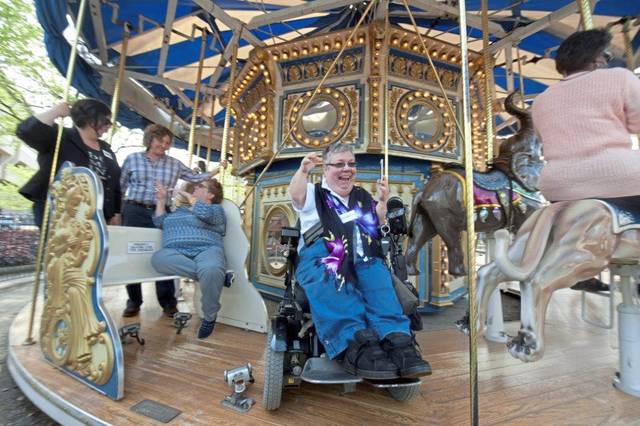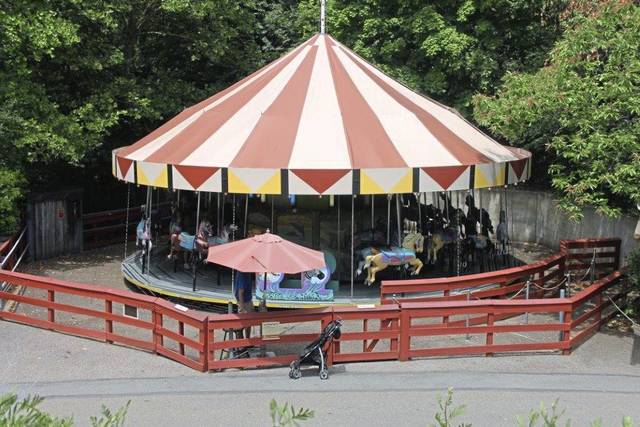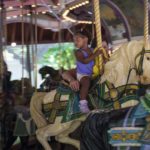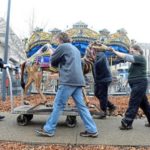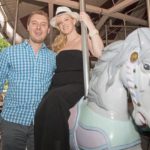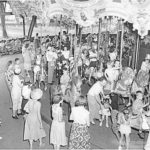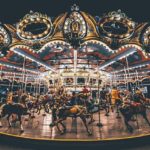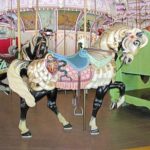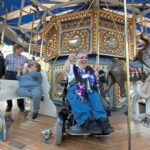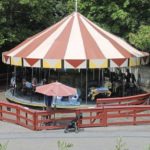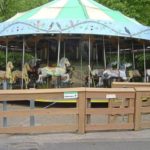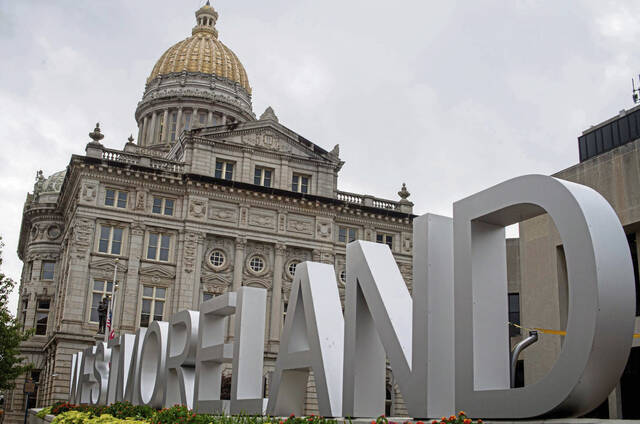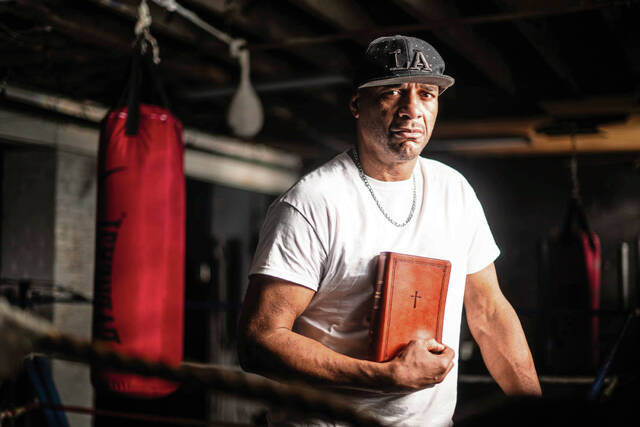The carousel, also known as a merry-go-round, is often the first ride children experience at an amusement park.
Giggling from atop a (usually) horse, they may or may not go up and down, but they surely will go round and round, typically accompanied by calliope or band organ music.
National Merry-Go-Round Day, July 25, recognizes the ongoing popularity of the ride that everyone from toddlers to grandparents can easily board and enjoy.
Although it can be described as a rotating circular platform with benches and painted horses and other animals on poles for riders, each carousel has its own personality. Some riders will even get back in line and wait for another turn if someone beats them to a favorite horse.
According to the National Carousel Association, the first U.S. patent for the modern carousel was issued to William Schneider of Davenport, Iowa, in 1871.
They pop up at most community fairs and festivals, but in the western Pennsylvania region, these four carousels are among the most well known and popular.
Kennywood Park
Originally built for the 1926 Philadelphia Sesquicentennial for $25,000, the carousel was not completed in time, according to the West Mifflin park’s website.
It features four rows of 72 animals (50 jumping and 20 stationary), including one lion and one tiger, as well as four chariots (benches) for those who may enjoy the round and round but not so much the up and down.
The carousel has 1,648 lights and a 1916 Wurlitzer band organ provides its music.
The Pittsburgh History & Landmarks Foundation has designated the carousel as a historic landmark.
Details: kennywood.com
PNC Carousel
Often simply referred to as the carousel at Schenley, the Victorian-style carousel was erected in 2006.
Visitors of all ages and abilities are encouraged to enjoy the colorful ride and old-fashioned pipe organ music in the urban Schenley Plaza along Forbes Avenue in Oakland.
The original Schenley Park Carousel opened to the public at the corner of Panther Hollow and Greenfield roads in 1913.
This year the carousel is set to run through Oct. 13, and is open daily from 10 a.m.-6 p.m., with hours extended to 8 p.m. on summer Fridays and Saturdays.
Riders can purchase tokens for $2.
Through individual and organization sponsorship, each of the PNC Carousel animals has been adopted, according to the Pittsburgh Parks Conservancy.
They also have names, including “Freedom,” an eagle; “Krissy’s Lilly,” a horse; “Sea Diver,” a dolphin; “Puff,” a sea dragon; “Troy Polamalu,” a giraffe; “Rrraaa-bit,” a rabbit; the “Accessible Chariot;” “Henrietta,” a pig; and “Pitt the Panther,” (panther).
As the carousel is primarily intended for younger park users, riders over 18 are asked to use one of the stationary animals.
Details: pittsburghparks.org
Idlewild & Soak Zone
A landmark at the park’s Olde Idlewild section since 1931, the merry-go-round was one of the last built by the Philadelphia Toboggan Co. in the 1920s.
Three of the horses at the park in Ligonier Township still bear shields with the PTC initials.
A student packet helps young riders count the number of stationary versus moving horses.
Spoiler alert: The ride offers 28 “jumping” and 20 standing horses, along with two chariots and a band organ.
Details: idlewild.com
Pittsburgh Zoo & PPG Aquarium
The Highland Park zoo carousel was manufactured in the 1940s by the Allan Herschel company and installed with the opening of the children’s zoo in 1949.
Riders pay $2, and choose their brightly colored horse — no other animals appear on this carousel.
All 28 take their charges up and down; those interested in simply moving forward can ride one of the two, two-seater benches.
The horses are unnamed, and their colors were refurbished to freshen up the paint about five years ago.
Details: pittsburghzoo.org



